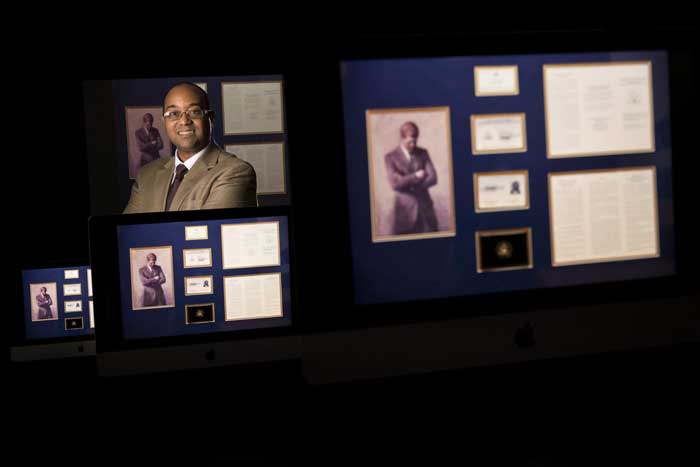UA Little Rock professor reflects on investigation of JFK assassination records
In 1991, the conspiracy-thriller film, “JFK,” reignited the public’s interest in a potential political conspiracy involving the 1963 assassination of President John F. Kennedy.
Congress passed the JFK Assassination Records Collection Act in 1992, which created the Assassination Records Review Board, an agency that investigated and collected records related to the assassination of President John F. Kennedy.
“As someone who taught public policy, I’m not surprised a movie started all of this,” said Dr. David Montague, director of eLearning at the University of Arkansas at Little Rock who served as the senior investigator of the JFK Assassination Records Review Board from 1995 to 1997.
“Once that movie came out in 1991, a lot of people were getting older and wondering what really happened to JFK,” he said. “You had a president killed on national TV, and then the Warren Commission comes out and said Lee Harvey Oswald, single bullet, lone gunman. A lot of people weren’t satisfied. People wondered why the government needed to keep so many records classified. Is it administrative red tape, national security, or something else?”
The legislation also required the government to release all files related to Kennedy’s assassination after 25 years. President Donald Trump released thousands of the last classified records Oct. 26, but delayed the release of hundreds of documents due to national security concerns. Those documents will receive a 180-day review of redactions from agencies. An additional batch of documents related to Kennedy’s assassination investigation was released Nov. 3.
As senior investigator, Montague investigated, identified, collected, and reviewed countless documents and interviews related to Kennedy’s assassination. Most of the files Montague reviewed have already been released to the public. While he is excited about the recent release of additional documents, he doesn’t think they will provide the answers people hope to find.
“Do I think the release of these documents will shut all the questions down? No. I think it will intensify the questions for some people, and there are always going to be those that think this (Kennedy’s assassination investigation) is a dead issue,” Montague said.
When Montague joined the review board, he didn’t realize how vastly complex the investigation and theories surrounding Kennedy’s assassination were.
“I grew up in the Washington, D.C. area, and I always had a commitment to public service,” Montague said. “I knew his death was a very big deal. What I didn’t realize is that it was enormously complex. I was very naïve at first. When I was first sitting in the executive director’s office, I started thinking about how we are a whole agency focused on the assassination of one person. Does that make sense? Then I realized how complex it has been for decades and the mystery that surrounded it.”
Montague thinks his team’s work with the review board was especially successful since people knew the information was being collected for the National Archives and reviewed for release to the public.
“People really wanted to talk to us,” he said. “I can’t tell you how many people started crying because they felt like they were finally able to talk about it. There were no secrecy orders. I think that is why we were successful. The public reached out to give us hints and clues about where records might be. At the same time, ‘The X-Files’ was really popular on TV. I joked that our lives were like ‘The X-Files.’”
While the Warren Commission concluded in 1964 that Lee Harvey Oswald acted alone in Kennedy’s assassination, it’s a conclusion with which Montague respectfully agrees to disagree.
“Given the level of access, just based on what I have seen, I just personally don’t see how Oswald could have done that by himself,” he said. “When I joined the agency, my hope was that we would release everything related to the assassination that was not a threat to national security or things we don’t release to the general public. I’m not surprised that there are still some documents that haven’t been released. They may be related to national security, but maybe there will be another agency investigating these documents in the future.”
